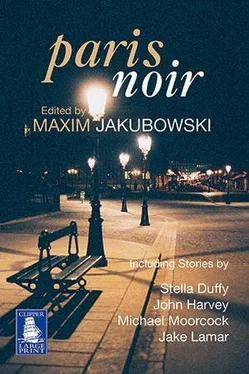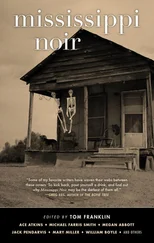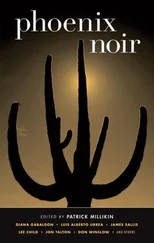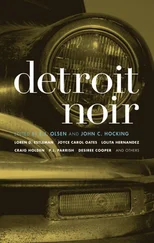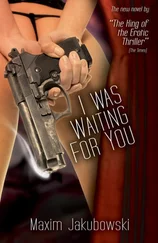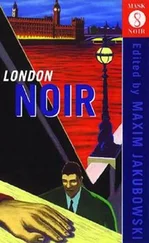Maxim Jakubowski - Paris Noir
Здесь есть возможность читать онлайн «Maxim Jakubowski - Paris Noir» весь текст электронной книги совершенно бесплатно (целиком полную версию без сокращений). В некоторых случаях можно слушать аудио, скачать через торрент в формате fb2 и присутствует краткое содержание. Жанр: Детектив, на английском языке. Описание произведения, (предисловие) а так же отзывы посетителей доступны на портале библиотеки ЛибКат.
- Название:Paris Noir
- Автор:
- Жанр:
- Год:неизвестен
- ISBN:нет данных
- Рейтинг книги:3 / 5. Голосов: 1
-
Избранное:Добавить в избранное
- Отзывы:
-
Ваша оценка:
- 60
- 1
- 2
- 3
- 4
- 5
Paris Noir: краткое содержание, описание и аннотация
Предлагаем к чтению аннотацию, описание, краткое содержание или предисловие (зависит от того, что написал сам автор книги «Paris Noir»). Если вы не нашли необходимую информацию о книге — напишите в комментариях, мы постараемся отыскать её.
Edited by Maxim Jakubowski, the stories range from quietly menacing to spectacularly violent, and include contributions from some of the most famous crime writers from both sides of the Atlantic, as well as the other side of the Channel.
Paris Noir — читать онлайн бесплатно полную книгу (весь текст) целиком
Ниже представлен текст книги, разбитый по страницам. Система сохранения места последней прочитанной страницы, позволяет с удобством читать онлайн бесплатно книгу «Paris Noir», без необходимости каждый раз заново искать на чём Вы остановились. Поставьте закладку, и сможете в любой момент перейти на страницу, на которой закончили чтение.
Интервал:
Закладка:
In fact the first time he saw it, six weeks ago, he was with the girlfriend, a fact that occurs to him towards the end of the film. It’s an American comedy, just the kind of thing she hated, and though it would be wrong to attribute the breakup to his insistence on seeing the movie, it was nonetheless the day after that she gave him the sad news that she was leaving him. At the time he’d felt no sadness, just a vague sense of humiliation – obviously he would have preferred to be the one doing the leaving – and irritation, since replacing her would not be easy.
Now he feels shadowed by deep depression, and for the umpteenth time since the breakup he misses her. He’s tired of jerking off, and his efforts to meet other women have come to nothing. Add to that the fact that his bookstore – where the ex-girlfriend in question still works – trudges forward day by day on an inevitable march towards the mortification of bankruptcy. He wonders at what point he will give up and go back to England, finds the prospect sickmaking.
Outside the air is cool, though not bad for the season. He stops off in a beer bar with a Belgian monastery theme where they know him. Without waiting for his order the waiter brings him half a litre of Abbey beer; he relaxes, begins to read again.
At a quarter to midnight, having read fifty pages and drunk a litre and a half of Tripp el, and having got up three times for a piss, he leaves the bar and crosses the place de la Bastille. He ends up standing before an art cinema that runs Dr Strangelove every night at midnight; it seems to him, drunk as he is, to be the only film in the world that could improve his outlook on life.
As expected, he leaves the cinema with his spirits considerably lifted. Anxious to read a few more pages before sleep he stops in a café on the place and orders half a litre of Munich beer. When it comes he drinks it as though it were his first of the night and not the tenth and then, warmed and happy, orders another.
The boulevard Beaumarchais is nearly deserted when he starts walking it around two-thirty in the morning. He doesn’t give a shit about the girl or the bookstore or Paris. If he has to go back to England, tant fucking pis.
When he first hears the woman’s cries, he doesn’t identify them as such and doesn’t turn to look. When they continue, overlaid by others, male and full of rage, he looks across the boulevard to see a struggle between a man and a woman, the former attempting to forcibly drag the latter towards the front door of a nearby building.
The woman is young and, like her assailant, of Asian origin. Her struggles against his efforts to drag her are frenzied, and he understands that she’s in a panic, begging for help in a language he can’t understand or even identify.
While the bookseller, stopped in his tracks, continues to watch, the woman continues to scream and her attacker continues to drag her towards the doorway. They’re both Japanese – Korean, perhaps? – and he decides they must be a couple, that this is a mere domestic dispute and therefore none of his affair.
He continues on his way home.
The young woman’s cries follow him up the boulevard, mixed with those of her enraged attacker, and the sounds of the occasional automobile passing at that hour of the morning. It must have been a couple having a spat, he tells himself, none of his business. They were probably drunk, both of them, and he knows better than to place himself between a man and a woman in the middle of a fight, especially when they’re drunk. And if that’s not the case then surely some passerby will note her distress and stop to rescue her…
As he reaches the boulevard des Filles du Calvaire, he realises that he no longer hears the woman’s voice; in fact he hears almost nothing. It’s the quietest moment he’s experienced since the day he arrived in Paris.
Now he’s stricken with an unexpected panic; how could he bear the knowledge that an innocent had suffered for his lack of courage? He turns on his heel and starts running at top speed towards the Bastille. Despite the dissipation of the last few weeks he’s in good physical shape, and he is rather proud of the fact that he’s running so fast without losing his breath. He crosses the boulevard and when he finally makes it to the spot where the struggle took place he sees no one. The night is calm, the door to the building closed, and no witness is present to tell the fate of the unhappy couple. He pushes the door without managing to open it, tries to ring the bell, knocks as hard as he can, but fails to awaken the building’s concierge, if it has one. He’s not even sure that this was where he was dragging her. In any case there are no more screams, no visual or auditory trace of the fight.
After a minute he gives up, takes up once more his slow ascent of the boulevard Beaumarchais towards his empty room, feeling not quite as nauseated as he will tomorrow morning.
DEUS EX MACHINA by SPARKLE HAYTER
Going through a rough time in a happy and beautiful place like Paris puts one’s misery in sharp relief. The more luminous and prosperous Paris looks, the more Shay feels excluded from it. Her self-pity steadily darkens that winter despite her earnest efforts to make her dismal state of affairs romantic, invoking the spirits of great writers forged by poverty and depression. After all, while Hemingway was poor, he found a moveable feast. Orwell, down and out in Paris, scratching with bugs from old grey mattresses in flop hotels, sick from the stench of sulphur burned to try to keep the insects down, found in it all the brilliance to become a great writer. Then there was the composer Virgil Thomson, an intimate of Gertrude Stein and Miss Toklas, who once said, glibly, that he preferred to be poor in Paris rather than in America because ‘I’d rather starve in a place with good food’.
Shay tries to be buoyed by that philosophy but now she wonders if it isn’t better to starve in a place with bad food, where the warm gusts of air and laughter escaping through restaurant doors on cold winter nights are scented with less delicious flavours and don’t remind her how long it has been since she’s been able to afford even a medium-rare bavette in Béarnaise sauce with frites and a glass of beer, under ten euros in most joints in her neighbourhood. And besides, those who found inspiration and the seeds of prosperity in hard times were usually iconoclastic geniuses. She isn’t sure any more she has even the spark to genius, that she can justify coming here. It had all been done, hadn’t it? Every inch of this city, every quirk of the culture, had been covered long before she arrived, right down to the joys of the classic French pissoir which Henry Miller spoke about with such eloquence and affection. Most of them were gone now, the ornately decorated circular tin urinals, little green kiosks, open at the top and bottom so you could see the legs and heads of those using them, exchange a friendly wave or have a neighbourly chat. It would be hard to update that – the new version was an oblong booth made of corrugated fibreglass in dull beige or brown. It cost 40 cents to use it, and you had a limited amount of time in the closed, modular bathroom before it flushed itself with water and cleaning chemicals. She’d heard about someone who lingered too long in one and drowned.
During this time, she develops a terror that this is how she’ll die, not in a public toilet per se, but in some ironic, comic or embarrassing way, which will stick in people’s minds so everything she has done before will be blotted out by it. Instead of ‘award-winning graduate of the Iowa Writers’ Workshop and performance artist Shay Rutherford dies’ or even, ‘artist of some renown in certain circles dies during performance’, she’ll be remembered as the woman killed by the cork of the bottle of champagne she was opening to celebrate some long-awaited good news, or run over by a truck full of monkeys bound for the zoo, the driver later revealed to be a long-lost cousin, or by a car full of clowns in civilian clothes on their way to a wedding, or simply remembered as the woman killed while walking down the street by the last Titanic survivor who falls out of a window while watering her peacock tulips and, miraculously, survives yet again thanks to Shay’s broken body cushioning her fall.
Читать дальшеИнтервал:
Закладка:
Похожие книги на «Paris Noir»
Представляем Вашему вниманию похожие книги на «Paris Noir» списком для выбора. Мы отобрали схожую по названию и смыслу литературу в надежде предоставить читателям больше вариантов отыскать новые, интересные, ещё непрочитанные произведения.
Обсуждение, отзывы о книге «Paris Noir» и просто собственные мнения читателей. Оставьте ваши комментарии, напишите, что Вы думаете о произведении, его смысле или главных героях. Укажите что конкретно понравилось, а что нет, и почему Вы так считаете.
